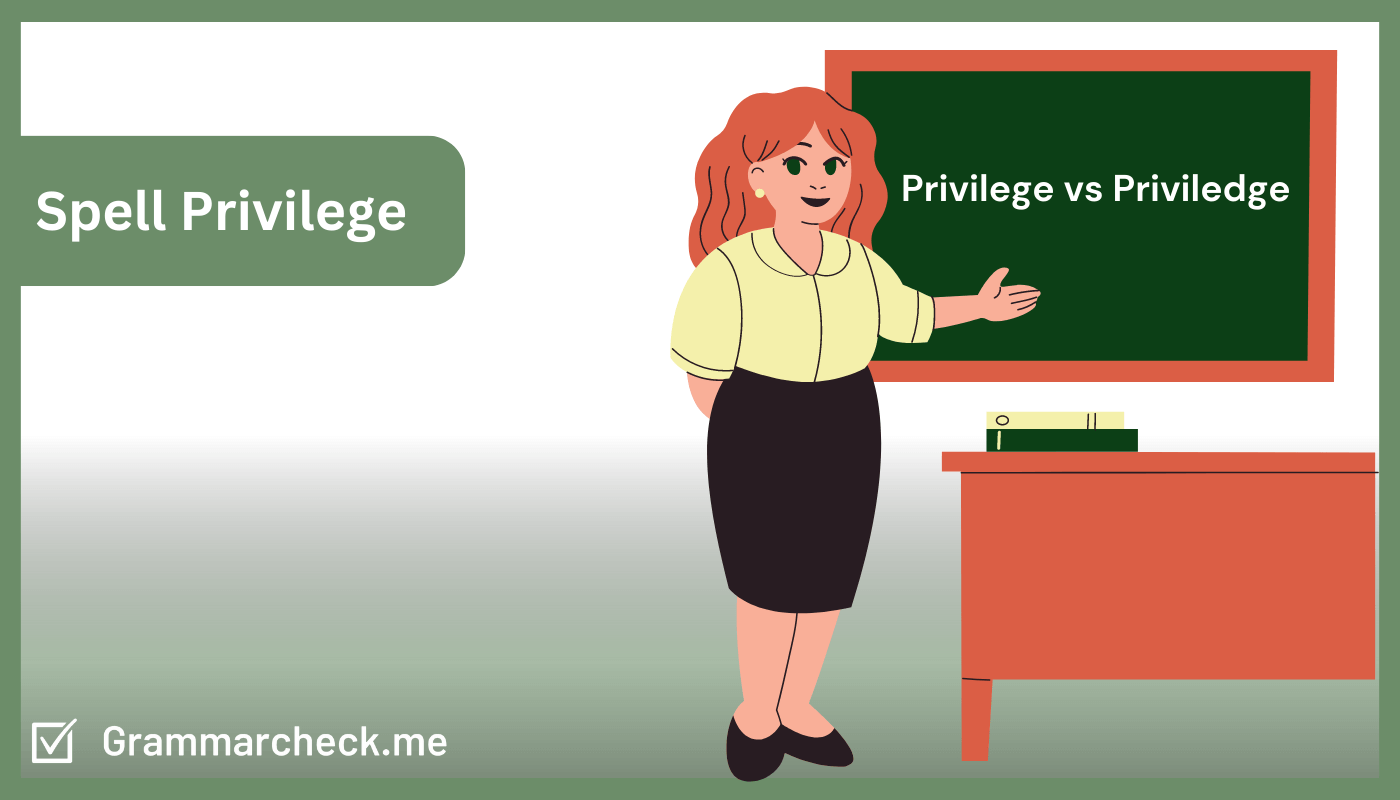Privilege is the correct spelling & priviledge is a very common misspelling. The word privilege is most commonly used as a noun meaning an advantage gained or special right given.
There are many different types of privileges people can have including but not limited to sexual privilege, race privilege, economic privilege and religious privilege.
The most common synonyms for privilege include the words advantage, benefit, perk and more. In this post, we’ll explore the meaning, use cases, and spelling of the word privilege.

Which Spelling Is Correct: Priviledge or Privilege?
The correct spelling is “Privilege.” The spelling priviledge is incorrect and should not be used in any writing context.
The word “privilege” originates from the Latin word “privilegium.” Privilegium was used to mean a specific law affecting an individual, a special right, or a benefit.
“Priviledge” is the incorrect spelling because it adds an extra “d”. There are other common misspellings for privilege including “privledge” and “privilige.” Just like we saw in our analysis of the word Successfully vs Succesfully, even a small spelling mistake can completely change the meaning of a sentence.
What Is The Definition Of Privilege?
The word privilege can be used as a noun or verb depending on the context of the writing. When used as a noun, privilege refers to a special advantage or right granted to a particular person. A specific person, group of people, or entity can have privilege. When someone has privilege they have a favorable condition that they did not earn & it gives them an advantage over others.
As a verb, privilege refers to the act of granting a special advantage or honor upon someone. For instance, one might say, “He was privileged with the opportunity to address the gathering.” The word privilege is rarely used a verb & is most commonly used as a noun.
Here are a list of situations when the word privilege can be used.
- Social inequality
- Legal contexts
- Economic contexts
- Race or gender conversations
How Do You Use Privilege In A Sentence?
Here are a list of 5 sentences that contain “privilege” correctly.
- Growing up in a wealthy neighborhood, she had the privilege of attending prestigious schools and having access to top-notch healthcare.
- Recognizing his privilege as a male, he actively worked to dismantle gender stereotypes and support women’s empowerment.
- The meeting was held behind closed doors to protect the attorney-client privilege, ensuring confidential communication between the two parties.
- As an advocate for social justice, she used her platform to raise awareness about racial privilege and its impact on marginalized communities.
- Access to clean water is a basic human privilege that millions around the world still lack, highlighting the global disparities in essential resources.

What Are Synonyms For The Word Privilege?
Adding synonyms to your writing is a great way to add variety to your writing and elevate your writing quality. Here are a list of synonyms that can be used instead of privilege.
- Advantage
- Benefit
- Perk
- Entitlement
- Favor
- Right
- Immunity
Popularity Analysis
By reviewing Google’s N-Gram viewer you can see that correct spelling (privilege) is far more popular than priviledge. This is because privilege is the proper spelling and the correct word to indicate that someone has an advantage in a situation. However, like we saw in our post about the phrase “Is It Ok” even incorrect spellings can become popular in modern literature.
Frequently Asked Questions
No, grammatical privilege and grammatical errors are different. Privilege highlights deviations allowed within the language, whereas errors involve incorrect usage that may hinder effective communication.
English learners can address grammatical privilege by understanding when and why certain words or structures enjoy exceptions. This involves studying irregularities and mastering contexts where privileged elements are appropriately used to enhance language skills.
The Bottom Line
By now you should understand the how to spell privilege correctly. This word originates from the Latin prīvilēgium law and evolved into the modern English language spelling privilege. There are many different situations when privilege can be used correctly to indicate an inherit advantage over a person or group of people. Consider using our own Spelling Detector if you need help with grammar rules like this!
